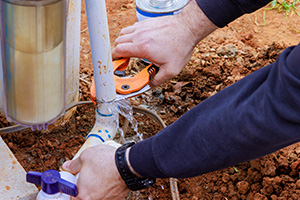 Introduction to Plumbing Emergencies
Introduction to Plumbing Emergencies
Plumbing emergencies in commercial settings can pose significant risks to property, occupants, and operations. In this section, we’ll explore what constitutes a plumbing emergency and why prompt action is crucial when facing such situations.
Plumbing emergencies encompass a range of sudden and serious issues that require immediate attention to prevent further damage and disruptions. From burst pipes to sewer backups, these emergencies can cause water damage, structural issues, health hazards, and business interruptions if left unaddressed. Recognizing the signs of a plumbing emergency and knowing when to call a commercial plumber can help mitigate risks and minimize the impact on your property.
Sudden Loss of Water Pressure
A sudden loss of water pressure is often an indication of a plumbing problem that requires urgent attention. In commercial properties, a drop in water pressure can affect various fixtures and appliances, disrupting daily operations and inconveniencing occupants. Understanding the potential causes of decreased water pressure can help identify and address the underlying issue promptly.
Several factors can contribute to a sudden loss of water pressure in commercial buildings. These may include leaks in the plumbing system, blockages in pipes or fixtures, malfunctioning valves or pressure regulators, or issues with the municipal water supply. Regardless of the cause, a sudden drop in water pressure can indicate a significant plumbing issue that needs immediate resolution to prevent further complications.
Recognizing the signs of decreased water pressure, such as slow-flowing faucets, weak shower streams, or inefficient irrigation systems, can prompt proactive action to resolve the issue. Calling a commercial plumber at the first indication of a water pressure problem allows for timely diagnosis and repair, minimizing downtime and mitigating potential damage to your property. Additionally, addressing water pressure issues promptly can help maintain a comfortable and functional environment for occupants and visitors.
Burst or Leaking Pipes
Burst or leaking pipes are among the most urgent plumbing emergencies in commercial properties, as they can result in extensive water damage and disruption to business operations. In this section, we’ll delve into the signs of burst or leaking pipes and the immediate steps to take when faced with such emergencies.
Signs of burst or leaking pipes include visible water leaks, dampness or water stains on walls or ceilings, and the sound of running water when no fixtures are in use. In some cases, burst pipes may cause flooding or pooling water, posing safety hazards and potential damage to property and belongings. It’s essential to act swiftly upon detecting signs of burst or leaking pipes to minimize water damage and prevent further complications.
When faced with burst or leaking pipes, the first step is to shut off the main water supply to the building to stop the flow of water and prevent additional flooding. Next, contact a commercial plumber immediately to assess the situation and perform necessary repairs. Professional plumbers have the expertise, tools, and experience to locate and repair burst or leaking pipes efficiently, restoring the integrity of the plumbing system and mitigating water damage.
Backed-Up Drains and Toilets
Backed-up drains and toilets are common plumbing emergencies in commercial properties that can disrupt business operations and pose sanitation risks. This section will explore the signs of drain and toilet backups and the importance of addressing these emergencies promptly.
Signs of drain or toilet backups include slow drainage, gurgling noises from drains, sewage odors, or water backing up into sinks, showers, or toilets. These issues may indicate blockages or obstructions in the plumbing system, which can lead to sewage backups and contamination if left untreated. Backed-up drains and toilets not only pose health hazards but also inconvenience occupants and customers, making prompt resolution essential.
In the event of drain or toilet backups, it’s crucial to avoid using affected fixtures and minimize water usage to prevent further flooding or sewage spills. Contacting a commercial plumber as soon as possible is recommended to assess the extent of the blockage and implement appropriate solutions. Professional plumbers have the tools and expertise to clear blockages safely and efficiently, restoring proper drainage and preventing sewage backups. Addressing drain and toilet backups promptly helps maintain a clean, sanitary environment and ensures the uninterrupted operation of your business.
Foul Odors or Gas Smells
Foul odors or gas smells emanating from plumbing fixtures are indicators of potential plumbing emergencies that require immediate attention. In this section, we’ll explore the significance of foul odors or gas smells in commercial properties and the potential risks associated with these issues.
Foul odors, such as sewage smells or sulfuric odors, may indicate sewer line leaks, gas leaks, or other plumbing system malfunctions. Gas smells, in particular, can pose serious health and safety hazards, as they may indicate the presence of natural gas or other combustible gases in the building. Ignoring foul odors or gas smells can result in property damage, health risks, and even the risk of explosions or fires in extreme cases.
If you detect foul odors or gas smells in your commercial property, it’s essential to evacuate the building immediately and contact emergency services to report the issue. Avoid using any electrical devices, open flames, or other potential ignition sources, as they could ignite gas leaks and cause explosions. Once the building has been evacuated and emergency responders have been notified, contact a licensed commercial plumber to inspect the plumbing system and address the source of the odors or gas smells.
Flooding or Water Intrusion
Flooding or water intrusion can occur suddenly and unexpectedly, posing serious risks to commercial properties and occupants. This section will explore the signs of flooding or water intrusion and the immediate steps to take when faced with these emergencies.
Signs of flooding or water intrusion include pooling water, wet surfaces, water stains on walls or ceilings, and visible signs of water damage. Flooding can result from various plumbing issues, such as burst pipes, sewer backups, or heavy rainfall, and can cause extensive damage to property and belongings if not addressed promptly. Additionally, water intrusion can compromise structural integrity, promote mold growth, and pose health risks to occupants.
In the event of flooding or water intrusion, it’s crucial to prioritize safety and mitigate further damage to the property. Shut off the main water supply to stop the flow of water and prevent additional flooding. If safe to do so, remove valuables and electronics from affected areas to prevent water damage. Contact a commercial plumber immediately to assess the situation, identify the source of the flooding, and implement appropriate measures to mitigate water damage and restore the integrity of the plumbing system.
Non-Stop Running Water
Non-stop running water from faucets or fixtures is a common plumbing emergency that can result in water waste, increased utility bills, and potential property damage. In this section, we’ll explore the causes of non-stop running water and the steps to take to address this issue effectively.
Non-stop running water may indicate various plumbing issues, such as faulty valves, worn-out seals, or leaks in the plumbing system. Left unchecked, running water can lead to water waste, mold growth, and structural damage to the property. Additionally, the constant flow of water can put a strain on the plumbing system and increase utility costs for the property owner.
If you notice non-stop running water from faucets or fixtures in your commercial property, it’s essential to act quickly to identify and address the underlying issue. Start by checking for any visible leaks or signs of water damage around the affected fixtures. If no obvious leaks are present, try turning off the water supply to the fixture to stop the flow of water temporarily. Contact a commercial plumber to inspect the plumbing system and identify the source of the problem. Professional plumbers have the expertise and equipment to diagnose and repair issues quickly, restoring the functionality of the affected fixtures and preventing further water waste and damage.
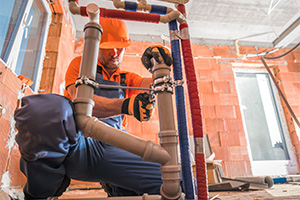 Introduction to Commercial Plumbing Contractors
Introduction to Commercial Plumbing Contractors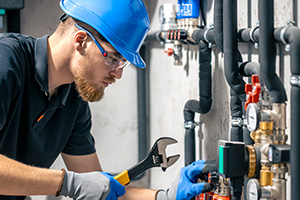 Introduction to Commercial Plumbing Repairs
Introduction to Commercial Plumbing Repairs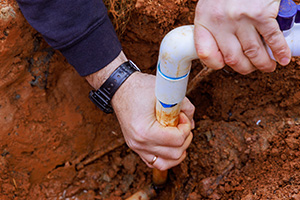 Introduction to Leak Detection
Introduction to Leak Detection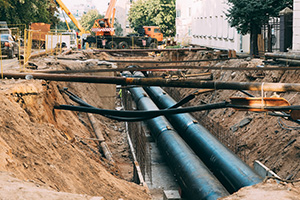 Introduction to Underground Pipe Location
Introduction to Underground Pipe Location